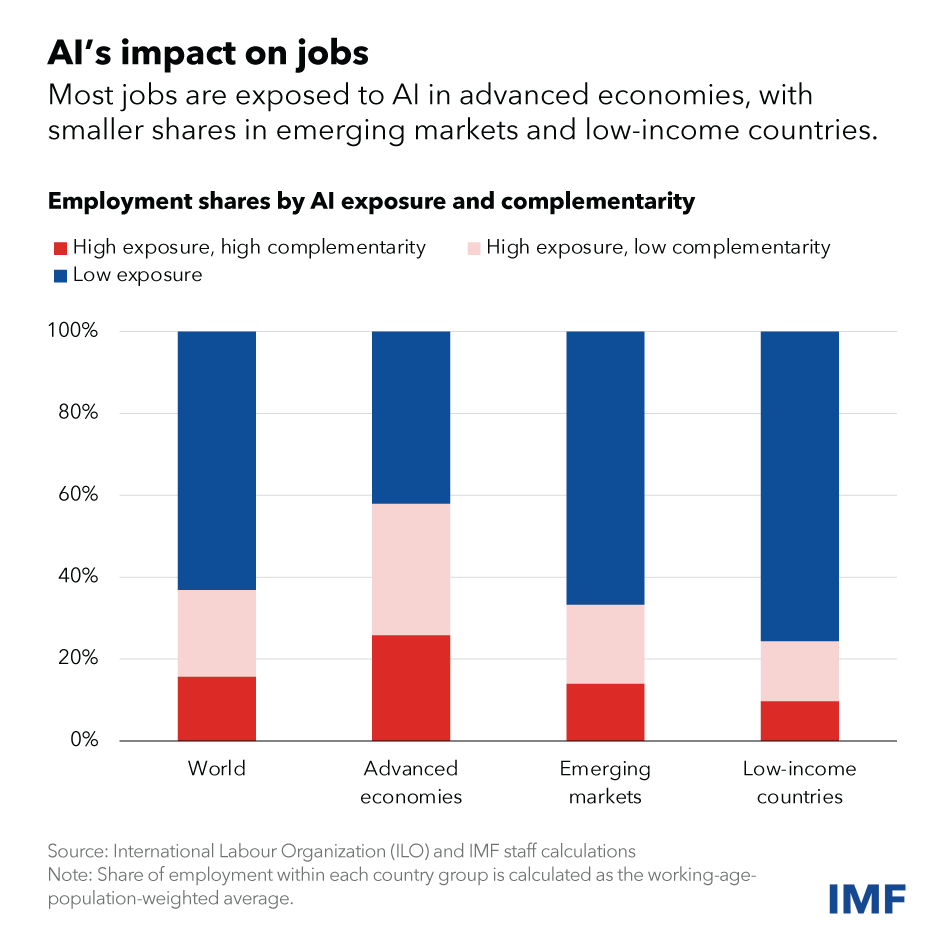In the era of digital progress, humanity stands on the threshold of a technological revolution, driven by the advancing development of artificial intelligence. A recent analysis by the International Monetary Fund (IMF) highlights the deep and far-reaching impact of AI on the global work landscape. Nearly half of the jobs worldwide, estimated at about 40 percent, could be influenced by the introduction and integration of AI. This phenomenon is particularly pronounced in advanced economies, where up to 60 percent of jobs could be affected by AI.
This transformation marks a departure from traditional automation processes. While automation has previously focused primarily on routine tasks, AI is characterized by its ability to influence highly skilled professions that require nuanced judgment, creative problem-solving, or complex data interpretation.
Interestingly, in about half of these cases, the integration of AI could increase productivity and thus benefit the job market. However, for the other half, this could lead to a reduction in job demand, lower wages, and in extreme cases, even job loss.

In emerging and developing countries, the impact of AI is estimated to be less severe, with about 40 percent of jobs affected. However, these countries face the challenge of lacking the necessary infrastructure or skilled workforce to fully exploit the benefits of AI. In the long term, this could exacerbate inequality between nations.
Another critical issue is the impact of AI on income and wealth inequality within countries. There could be a polarization, where workers who can effectively use AI increase their productivity and wages, while those who cannot fall behind.
In light of these challenges, the IMF urges policymakers to take proactive measures. These include comprehensive social safety nets and retraining programs for vulnerable workers to facilitate the transition to AI inclusion and contain inequality.
The AI era brings a wave of change that presents both opportunities and risks for the global workforce. How governments, companies, and society as a whole respond to these challenges will be crucial in how we use this technological advancement for the good of all, while mitigating negative impacts. It’s a call to action, an opportunity to reshape the world of work in line with technological advancements, with a special focus on equity and inclusion. The AI era demands that we act foresightedly and responsibly to create a future where technology and humanity go hand in hand.
Picture created with DALL-E3

